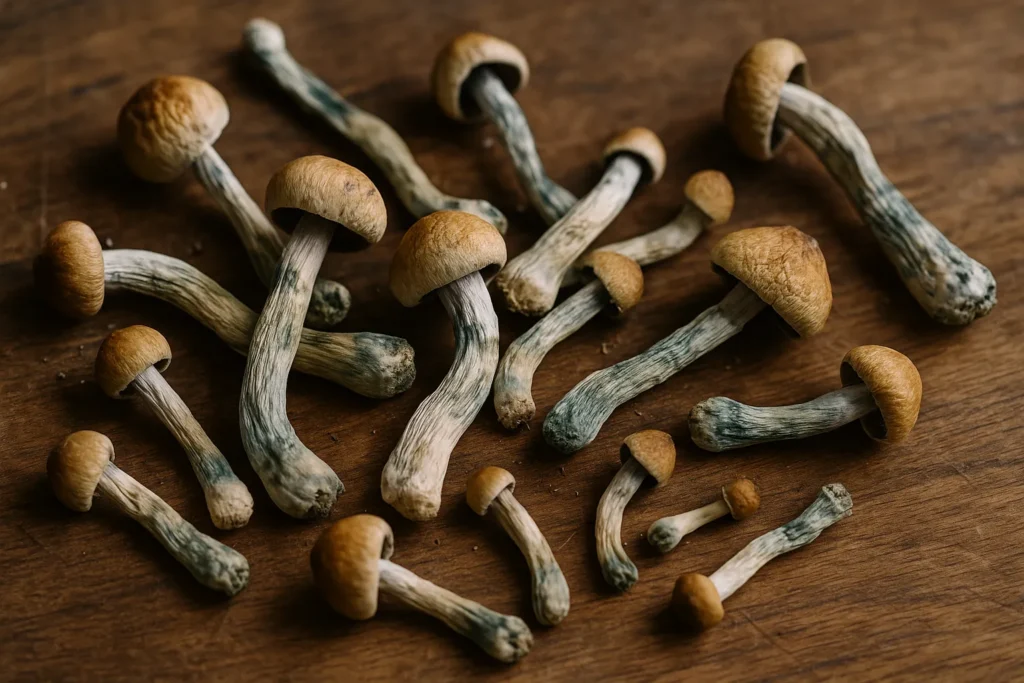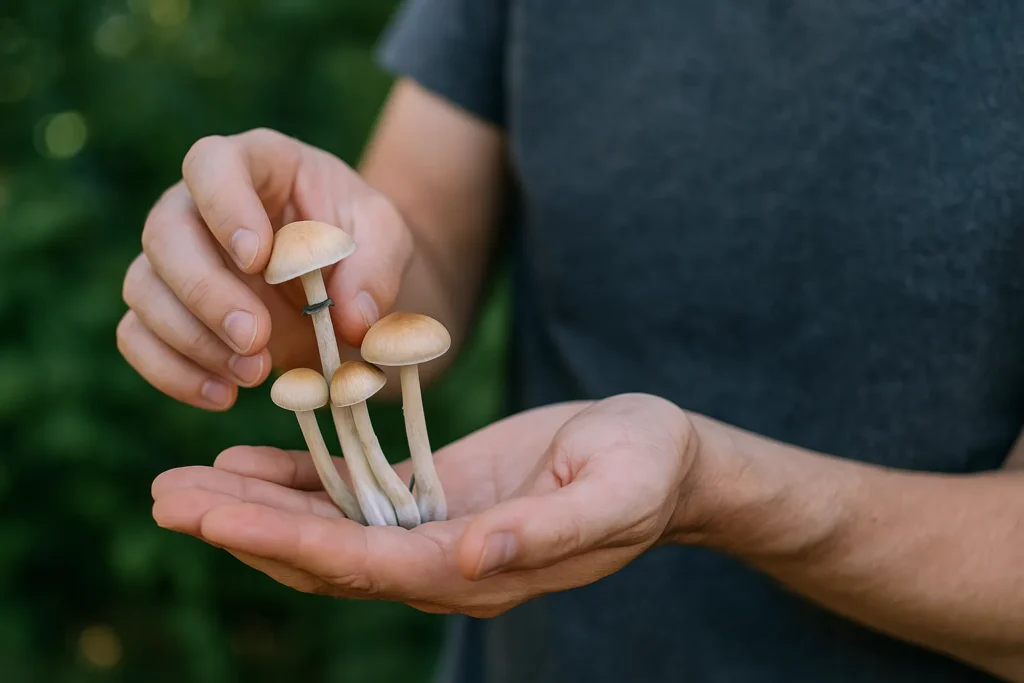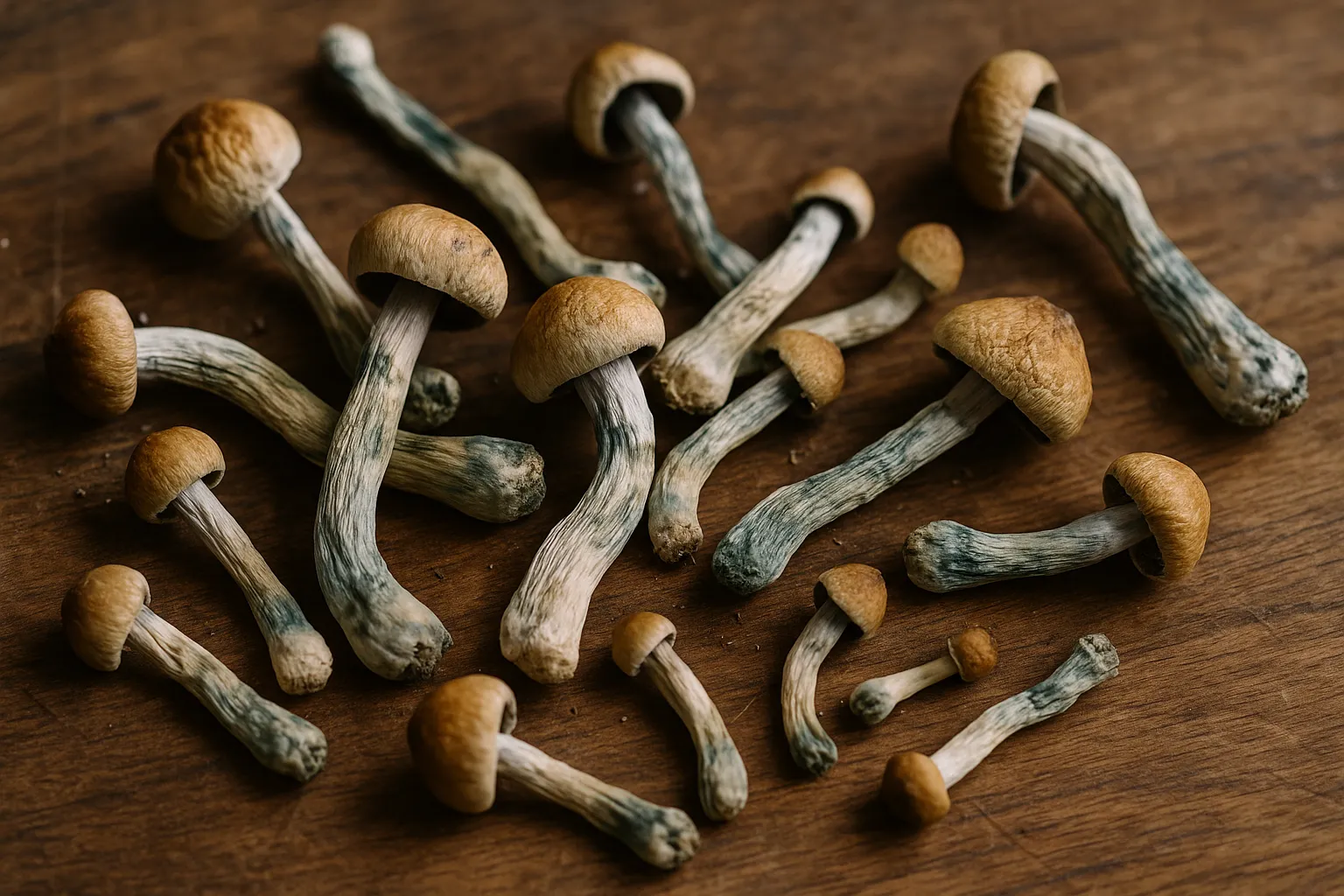
Legalizing psilocybin in Texas is quickly becoming a real possibility, not just a far-off idea. State lawmakers have already approved research into its medical benefits, and support is growing among veterans, doctors, and mental health advocates. The focus has shifted from questioning its effectiveness to discussing how it should be regulated. Legalizing psilocybin could reshape Texas’s approach to mental health treatment, impact the criminal justice system, and even influence how public funds are allocated.
What Is Psilocybin?
Psilocybin is a naturally occurring psychedelic compound found in specific types of mushrooms. Once ingested, the body converts psilocybin into psilocin, which interacts with serotonin receptors in the brain. The result often includes visual and sensory distortions, shifts in perception, and altered emotional states.
Historically, cultures used psilocybin in spiritual and healing practices. Modern science now focuses on its ability to treat depression, anxiety, PTSD, and addiction. Recent clinical trials have produced promising results, leading to renewed public and legislative interest.
Current Legal Status in Texas
Texas law treats psilocybin as a controlled substance. Possessing, manufacturing, or distributing it can lead to felony charges. Even small amounts carry serious penalties:
- Less than 1 gram: State jail felony
- 1 to 4 grams: Third-degree felony
- 4 to 400 grams: Second-degree felony
- Over 400 grams: First-degree felony
These penalties can result in prison time, fines, and long-term criminal records. Despite this, calls for legal change continue to grow, especially among those who see the drug as a potential medical tool.
The Push for Research and Reform
In 2021, Texas lawmakers passed House Bill 1802, which directed the state to study the use of psilocybin in treating PTSD among veterans. This marked a turning point, as it was the first time Texas formally acknowledged potential medical benefits.
The bill called for collaboration between the state’s health agencies and research institutions. It also showed that lawmakers could support scientific investigation without fully legalizing the substance.
Advocates now argue that if the state recognizes its therapeutic value, it should consider legal access under strict regulation.
Medical Potential and Public Interest
Several studies show that psilocybin may ease treatment-resistant depression and reduce anxiety in cancer patients. Others report success in breaking addiction to nicotine, alcohol, and opioids. Unlike daily antidepressants, psilocybin is often used in just one or two controlled sessions, supervised by mental health professionals.
In Texas, this matters. Rural counties often lack access to mental health care. Suicide rates among veterans and first responders remain high. Supporters of psilocybin reform believe legal use under medical guidance could offer relief to those who don’t respond to standard treatments.

Criminal Justice Impacts
Legalizing psilocybin would reduce drug-related arrests and free up resources for law enforcement and courts. Current laws contribute to over-policing in some communities, often leading to charges that carry lifelong consequences.
Texas jails many people each year for nonviolent drug offenses. These cases fill court dockets and cost taxpayers millions. Decriminalizing or legalizing psilocybin could ease pressure on the justice system and allow focus on more serious public safety concerns.
It may also reduce the racial and economic disparities seen in drug enforcement. Studies have shown that drug laws often affect minority and low-income communities disproportionately.
Economic Opportunities
Legal psilocybin would open a new market in Texas. Cities that regulate production and sale could collect licensing fees and taxes, similar to cannabis programs in other states. These funds could support mental health programs, education, or public safety.
Businesses could range from grow operations to clinics offering guided sessions. Legalization would also boost demand for research labs, training programs, and quality control testing. Entrepreneurs, healthcare providers, and universities could all benefit from a regulated framework.
Oregon, which became the first state to legalize psilocybin for supervised use, has already begun to see economic activity tied to the new law. Texas, with its size and infrastructure, could generate even stronger returns.
Risks and Concerns
Psilocybin still carries risks. Bad trips can cause panic or distress. In rare cases, users may experience lasting psychological effects. Some argue that legalization could lead to misuse or increase access for underage users.
To address this, most advocates propose controlled access. They support laws that allow psilocybin use only in licensed settings, under professional supervision. These rules would limit casual use and reduce potential harm.
Public education, screening, and safety guidelines would play a large role in any successful rollout. Texas lawmakers would need to build a framework that prioritizes safety while allowing access to those who may benefit.

What Texas Lawmakers Would Need to Do
Legalizing psilocybin would require careful legislation. Lawmakers would need to define who can produce, possess, or administer it. They’d also need to set rules around testing, training, and data collection.
Possible actions could include:
- Creating licenses for production, distribution, and therapy
- Defining acceptable medical conditions for treatment
- Funding training programs for therapists and medical providers
- Developing standards for lab testing and product safety
- Setting up databases to monitor outcomes and track data
These steps would help build a secure and accountable system.
Public Opinion and the Path Forward
Support for psilocybin reform continues to grow in Texas. Polls show rising interest in drug policy change, especially around mental health. The success of HB 1802 signaled that bipartisan support is possible.
The next step may involve more clinical trials, additional legislation, or city-level action. Some Texas cities may try decriminalization before full legalization. Others may partner with research groups to collect data and build public trust.
As veterans, doctors, and families speak up, the conversation will likely keep gaining traction. Legalizing psilocybin in Texas is no longer just a fringe issue. It sits in front of policymakers, backed by science, public support, and economic promise.
Final Thoughts
Texas is at a crossroads, and the discussion around legalizing psilocybin is gaining momentum. Legalization could offer new hope for people battling mental health conditions, reduce burdens on the criminal justice system, and create opportunities for innovation in research and business. Like any major policy shift, it carries risks—but with careful planning and strong regulations, Texas has the chance to lead where medicine and public policy intersect. The conversation is already underway. What happens next will depend on lawmakers and the voices of the communities they represent.

Other Related Articles:
- CBD in Texas and Navigating Legalities
- Texas Drug Schedules and Controlled Substances
- Possession in Texas: Understanding the General Provisions
- CPS Drug Testing in Texas: First Visits Unveiled!
- The Significance of CPS Drug Test Results
- Types of Drug Tests Used by CPS in Texas
- Understanding CPS Drug Testing Laws in Texas: A Comprehensive Guide
- CPS Drug Testing at Home in Texas: Legal Procedures and Implications
- Failing a CPS Drug Test for Marijuana in Texas
- What to Do When CPS Asks for a Drug Test in Texas
FAQs
Yes, there are potential risks, especially when psilocybin is not used responsibly. Misuse can lead to adverse psychological effects, and it may not be suitable for everyone. Legalization would require strict regulations to mitigate these risks.
A significant challenge is the contrast between state and federal laws. While some states may legalize or decriminalize psilocybin, it remains a Schedule I controlled substance at the federal level. Texas would need to navigate this legal tension and potentially seek changes at the federal level to align with state decisions.
Responsible use of psilocybin would involve adhering to regulations, obtaining products from legal sources, and using them in safe environments. Education on potential risks and harm reduction strategies would be essential to ensure safe practices.
Scientific research is instrumental in providing evidence of psilocybin’s effects and safety. It informs the discussion and policy decisions, helping lawmakers make informed choices regarding its legal status.
Public support for psilocybin legalization varies, and it’s a subject of ongoing debate. Some communities and states have shown strong support for measures to decriminalize or legalize psilocybin, indicating changing attitudes and readiness for reform.



